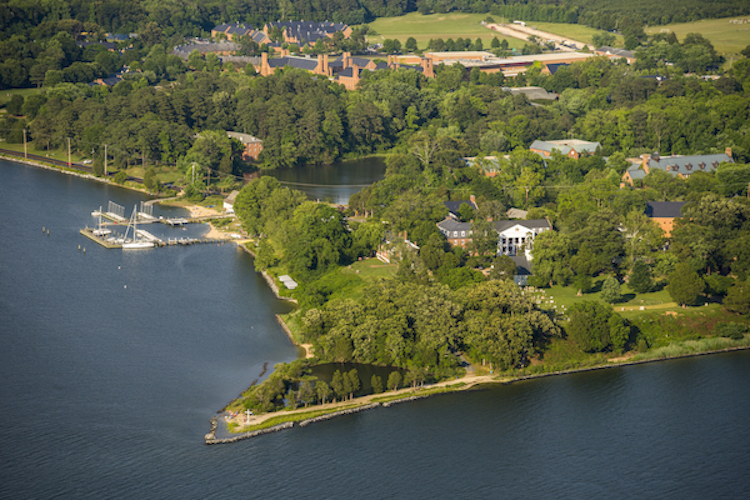St. Mary’s College of Maryland Partners with Washington University for Engineering Dual Degree Program Michael Bruckler March 15, 2021 - 9:58 am
March 15, 2021

St. Mary’s College of Maryland has partnered with Washington University in St. Louis, Missouri, to offer an engineering dual degree program. The program, considered one of the country’s premier engineering programs, is now in its 48th year at Washington University.
“While the St. Mary’s College students that are most likely to be interested have a focus in chemistry, math, and material sciences, the dual degree program is open to all students independent of major,” said Erin De Pree, SMCM associate professor of physics. “The advantage for an applied physics major is that we are accepting some of the upper-level engineering courses as replacements for student capstone experience at St. Mary’s College. This will make it easier for students to complete their requirements in a timely manner.”
St. Mary’s College students should apply to Washington University in their junior year. There is no application fee and no additional testing is needed. According to Washington University, clear eligibility criteria result in a dual degree admission rate of nearly 90 percent. That criteria includes students taking specific courses that contribute to both liberal arts and engineering degrees, achieving a minimum cumulative 3.25 GPA in all coursework and in STEM coursework, and an endorsement from students’ pre-engineering adviser.
Those admitted to the engineering dual degree program have two tracks from which to choose: 3-2 Option: Earning a St. Mary’s College bachelor’s degree and a Washington University bachelor’s degree or the 3-3 Option: Earning a St. Mary’s College bachelor’s degree plus a Washington University bachelor’s degree and Washington University master’s degree.
According to Washington University, students in the dual degree program benefit over simply transferring because dual degree staff and student leaders make a point of fostering a special cohort within the engineering community. And once students connect with one another through enrollment and orientation programming, dual degree students maintain a supportive network until graduation.
March 15, 2021

St. Mary’s College of Maryland has partnered with Washington University in St. Louis, Missouri, to offer an engineering dual degree program. The program, considered one of the country’s premier engineering programs, is now in its 48th year at Washington University.
“While the St. Mary’s College students that are most likely to be interested have a focus in chemistry, math, and material sciences, the dual degree program is open to all students independent of major,” said Erin De Pree, SMCM associate professor of physics. “The advantage for an applied physics major is that we are accepting some of the upper-level engineering courses as replacements for student capstone experience at St. Mary’s College. This will make it easier for students to complete their requirements in a timely manner.”
St. Mary’s College students should apply to Washington University in their junior year. There is no application fee and no additional testing is needed. According to Washington University, clear eligibility criteria result in a dual degree admission rate of nearly 90 percent. That criteria includes students taking specific courses that contribute to both liberal arts and engineering degrees, achieving a minimum cumulative 3.25 GPA in all coursework and in STEM coursework, and an endorsement from students’ pre-engineering adviser.
Those admitted to the engineering dual degree program have two tracks from which to choose: 3-2 Option: Earning a St. Mary’s College bachelor’s degree and a Washington University bachelor’s degree or the 3-3 Option: Earning a St. Mary’s College bachelor’s degree plus a Washington University bachelor’s degree and Washington University master’s degree.
According to Washington University, students in the dual degree program benefit over simply transferring because dual degree staff and student leaders make a point of fostering a special cohort within the engineering community. And once students connect with one another through enrollment and orientation programming, dual degree students maintain a supportive network until graduation.
